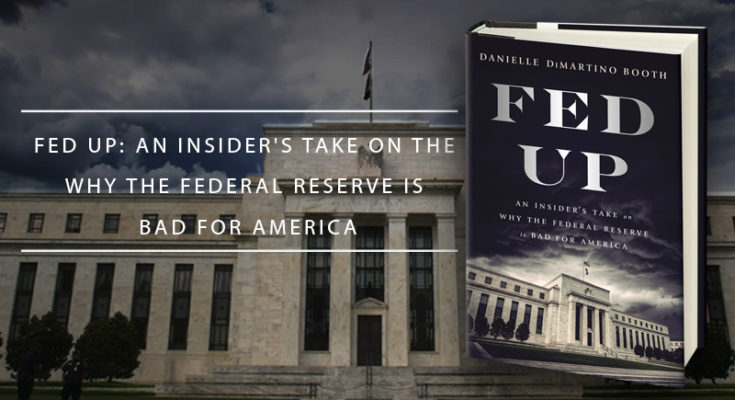For those of you who subscribe to the Wall Street Journal, please link on to today’s story on the book: A teaser in the form of a quote from Richard Fisher who the Journal interviewed for the article. “The book’s greatest value is in describing ‘the hubris of Ph.D. economists who’ve never worked on the Street or in the City,’ as well as flagging ‘the protected culture’ of Fed officials in Washington. Many central bankers are, ‘not going to like the book.â€
Former Fed Staffer Says Central Bank Is Under the Thumb of AcademicsFormer Fed Staffer Says Central Bank Is Under the Thumb of Academics
Not that Mr. Fisher asked for an answer. But to those who ‘don’t like it,’ I say, “So be it.†With that, please enjoy an excerpt from Fed Up, Chapter 11: Slapped in the Face by the Invisible Hand.

“You want to put out the fire first and then worry about the fire code.â€â€” Ben Bernanke, December 1, 2008
Among the economists at the Dallas Fed, Bernanke’s optimism prevailed. The Bear Stearns rescue was the punctuation mark that ended the paragraph. Bernanke would trim the sails to right the foundering ship.
I disagreed. The demise of the Bear was a flashing red light that shouted “danger.†My colleagues rolled their eyes.
Rosenblum treated me with a new respect. The chain of events was playing out as I had predicted. He and I began collaborating on a paper on moral hazard. It would make Rosenblum no fans at the Board of Governors.
The bailout both relieved and alarmed the financial press.
The Economist wrote that the Fed was “taking the unprecedented (and, some say, disturbing) step of financing up to $30 billion of Bear’s weakest assets. This could cost the central bank several billion dollars if those assets fall in value.â€
The fear of the unknown prompted the Fed, for the first time ever, to extend lending at its discount window to all bond dealers.
Under previous rules, only institutions offering depository insurance or under strict regulatory oversight were allowed to use the discount window, paying a penalty fee for the privilege. Now any distressed investment bank, broker, or commercial bank was allowed to come, hat in hand, to use the window.

